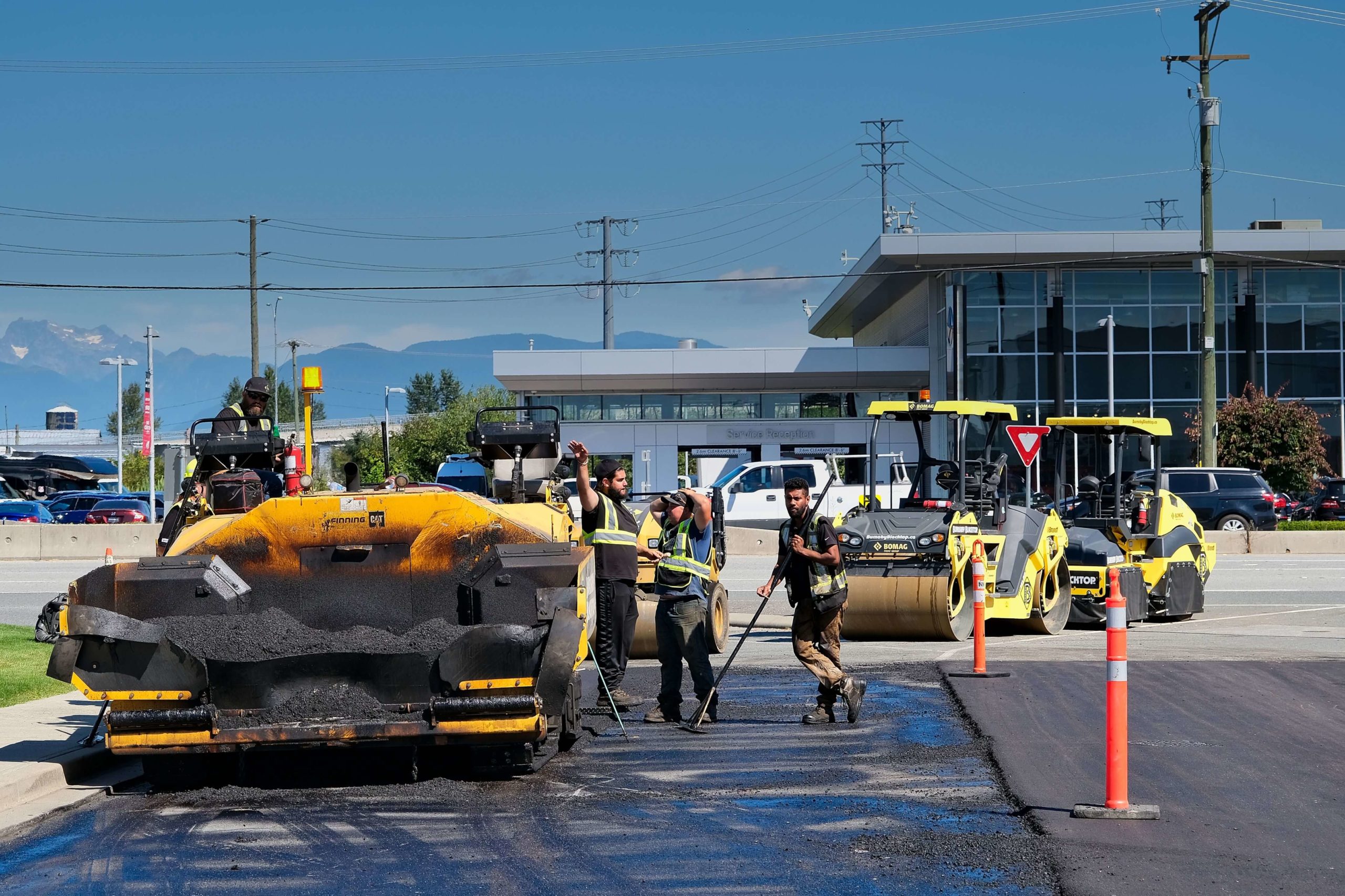Maximize Longevity: Warm Mix Asphalt Sealing for Angled Parking Frameworks
Maximize Longevity: Warm Mix Asphalt Sealing for Angled Parking Frameworks
Blog Article
Hot Mix Asphalt: A Sustainable Remedy for Pavement
Warm Mix Asphalt (HMA) has actually emerged as a leading sustainable choice for pavement remedies, supplying a myriad of ecological benefits and ingenious innovations. As the need for eco-friendly building and construction methods grows, checking out the subtleties of HMA's sustainability can offer useful insights right into the future of sidewalk services.
Ecological Advantages of Warm Mix Asphalt

In Addition, Warm Mix Asphalt helps to mitigate metropolitan warmth island effects. Its dark shade absorbs sunshine, minimizing the amount of warm reflected back right into the atmosphere contrasted to lighter-colored pavements. This can reduce ambient temperature levels in metropolitan locations, decreasing the demand for cooling and ultimately lowering power intake.
On top of that, Hot Mix Asphalt adds to improved stormwater monitoring. Its porous nature permits water to infiltrate the sidewalk and reenergize groundwater supplies, lowering drainage and the risk of flooding. These environmental benefits make Warm Mix Asphalt a sustainable option for leading roads and freeways.
Power Effectiveness in HMA Production
Is energy performance a crucial element in the manufacturing of Warm Mix Asphalt (HMA)? Energy plays a substantial duty in the manufacturing of HMA, affecting both cost and environmental sustainability. One vital element of power performance in HMA production is the usage of cozy mix asphalt (WMA) innovations.
Additionally, improvements in plant technologies have actually caused more energy-efficient HMA manufacturing procedures. Modern plants are developed with functions like recycled asphalt sidewalk (RAP) processing abilities, reliable heater systems, and improved insulation, all adding to energy financial savings. By maximizing energy use in HMA manufacturing, the sector can lower its carbon footprint while preserving top quality pavement materials. Power effectiveness is, as a result, a critical consideration in ensuring the sustainability of Hot Mix Asphalt production.
Recyclability of Warm Mix Asphalt
The recyclability of Hot Mix Asphalt (HMA) is a pivotal facet of its sustainability and long-term environmental effect. HMA is just one of one of the most recycled products in the United States, with over 100 million lots of recovered asphalt pavement (RAP) being recycled annually in new pavement building and construction. Reusing her comment is here HMA supplies numerous ecological benefits, such as decreasing the need for virgin products, reducing energy intake during manufacturing, and reducing the quantity of waste sent to landfills.
The process of recycling HMA includes grating the existing sidewalk, squashing it right into smaller pieces, and mixing it with brand-new aggregate and asphalt binder to develop a recycled mix. Overall, the recyclability of HMA plays a significant role in advertising sustainable practices within the pavement industry.

Long-Term Performance of HMA
Asphalt pavements demonstrate toughness and resilience over an extensive period, mirroring the lasting efficiency of Warm Mix Asphalt (HMA) Additionally, developments in HMA technology, such as the usage of polymer-modified binders and warm mix asphalt, have better improved the durability and durability of HMA sidewalks. By prioritizing high quality building and construction and maintenance methods, HMA read what he said proceeds to show itself as a economical and lasting solution for resilient sidewalk infrastructure.

HMA: Resilience and Sustainability
Demonstrating both durability and sustainability, Warm Mix Asphalt (HMA) has become a keystone in the building of resilient pavement frameworks - regrading. HMA's resilience originates from its capability to withstand heavy lots, severe weather, and high website traffic volumes, making it a dependable option for roadways, freeways, and airport paths. The structure of HMA, which typically consists of accumulations, binder, and filler, plays an important role in improving its long life and resistance to tear and use
Moreover, HMA's sustainability hinges on its recyclability and energy-efficient production procedure. The ability to reuse recovered asphalt sidewalk (RAP) in brand-new HMA mixtures minimizes the demand for virgin materials and reduces the ecological influence of pavement building and upkeep. In addition, the energy effectiveness of creating HMA depends on its reduced mixing temperatures compared to various other sidewalk products, bring about reduced energy consumption and greenhouse gas emissions.
Conclusion
In final thought, hot mix asphalt (HMA) provides a lasting remedy for pavement with its eco-friendly features. HMA's recyclability, power performance in production, and long-term longevity make it an eco-friendly choice for roadway building and construction. By saving natural resources, decreasing waste, and lowering greenhouse gas emissions, HMA plays an important duty in advertising sustainability in framework growth. Its capacity to alleviate metropolitan warm island impacts even more underscores its importance in creating resistant and eco mindful sidewalk systems.
HMA is one of the most recycled products in the United States, with over 100 million heaps of recovered asphalt pavement (RAP) being recycled yearly in new sidewalk building.The process of reusing HMA includes milling the existing sidewalk, crushing it into smaller sized pieces, and blending it with new accumulation and asphalt binder to create a recycled click mix.Asphalt sidewalks demonstrate durability and durability over an extended duration, reflecting the lasting performance of Hot Mix Asphalt (HMA) Additionally, improvements in HMA technology, such as the usage of polymer-modified binders and warm mix asphalt, have further enhanced the durability and durability of HMA sidewalks. The ability to recycle redeemed asphalt pavement (RAP) in brand-new HMA mixtures minimizes the need for virgin materials and lessens the ecological impact of sidewalk building and construction and upkeep.
Report this page